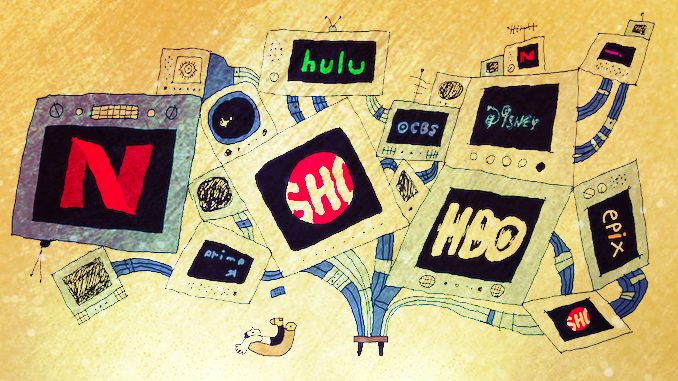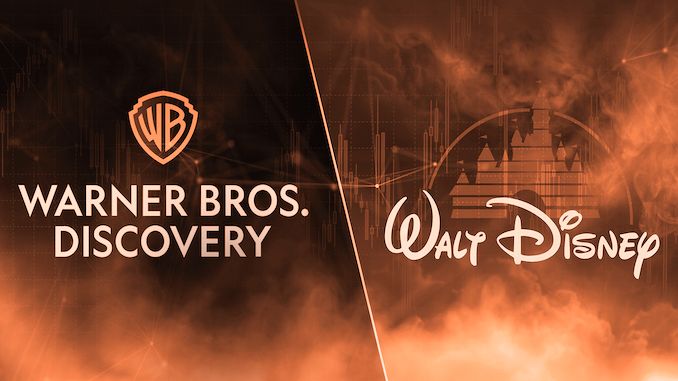
Less than a year ago, the largest content rights holders, including Warner Bros, were hoarding vast libraries of content from third-party licensees for use on their respective direct-to-consumer streaming services, reversing standard practices since time immemorial.
Now, what was once old is new again, as several of these same companies have started licensing films and shows to competitors again and exploring bundling options for multiple services and cross-promoting popular content.
- Rights Holders Reverse Licensing Initiatives That Withheld Content
- Worldwide Film & Television Distribution Intelligence
- Paramount+ Wins the 2022 Streaming Wars
- Netflix Innovates Theatrical Releasing with a Novel “Sneak Preview” Model
- FilmTake Away: What Was Old is New Again
- Broken Windows: Inside Hollywood’s Lucrative Film Licensing Deals
Rights Holders Reverse Licensing Initiatives That Withheld Content
The most significant rights holders in the business are discovering there is much more value in licensing and cross-promotion partnerships than holding content just for their in-house services. This about-face is happening in conjunction with cost-cutting measures industry-wide and content spending reductions in 2023, including at Netflix and Warner Bros Discovery (WBD).
After a year’s hiatus, HBO Max is back on Prime Video Channels. The ham-fisted move to remove it by AT&T cost the streaming services five million subscribers and nearly a billion in revenue. Under new leadership, after the Discovery merger, HBO Max is not only back on Prime Video Channels but also being promoted by Amazon alongside its own content offerings.
Amazon is more than willing to cross-promote other licensors’ content, like Game of Thrones and its spinoff, so long as Amazon’s Lord of the Rings spinoff is also featured in the advertisement. Amazon wins in both cases, either with new subscribers for Prime Video or transaction fees for Prime Video Channels for hosting HBO Max.
Worldwide Film & Television Distribution Intelligence
Get unparalleled access to market intelligence reports that draw on financial data and insights from dozens of content distribution deals worldwide between key industry participants, including — Distributors, Producers, Broadcasters, MPVDs, Pay Television Providers, and Streaming Exhibitors.

Film and Series distribution rates and terms deriving from dozens of agreements for rights to transmit films and episodic television via PayTV and SVOD.
Choose flexible options for single-user PDF downloads.
Licensing Terms & Included Programs:
Pay-1 & SVOD Rate Cards for Motion Pictures and Series Exhibited Worldwide in Multiple Availability Windows
- Motion Pictures: Pay-1, First Run, Second Window Features, Recent Library Features (Tiers AAA,A,B,C), Library Features (Tiers AAA,A,B,C), Current and Premium Made-For-TV Films and Direct-To-Video Films, covering many license periods over the last decade
- Episodic TV: Current, Premium, Premium Catalog (1HR & 1/2HR), Catalog Series (1HR & 1/2HR), and Catalog Miniseries + Case Studies on Current Mega Hit, Catalog Mega Hit, and Premium Catalog, covering many licensing terms from 2012-2024
- Because most-favored-nation rates operate in practice, the rates and terms apply to a diverse range of content and distributors worldwide in multiple availability windows.
Paramount+ Wins the 2022 Streaming Wars
The 2022 Global Film & TV Report conducted by YouGov reveals what everyone already knows: the popularity of streaming services is going full steam ahead. However, the report reveals essential details about who’s winning and losing in the current market.
According to YouGov’s metrics, the year-over-year popularity of Paramount+ catapulted by 37%. HBO Max, Prime Video, and Peacock gained modest popularity, ranging from 5-7%. Conversely, Apple was the biggest loser with a 2% drop, followed by Netflix, which shed 1% – Disney+ was up slightly around 2%.
Paramount+ became the biggest streaming winner in 2022, built off a trifecta of globally engaging episodic content, blockbuster tentpole films, and live sports.
Netflix Innovates Theatrical Releasing with a Novel “Sneak Preview” Model
Much of the success of Paramount+ is bolstered by the Yellowstone phenomena, even though the series doesn’t even stream on the service. However, the flagship show spawned 1883 and 1923; two origin shows incredibly popular on Paramount+. Current episodes of Yellowstone appear on the company’s basic cable provider, Paramount Network, while Peacock currently has the SVOD Licensing Rights to seasons 1-4 stateside.
Beyond its episodic success, Paramount+ is riding high from its global blockbuster Top Gun: Maverick, the highest-grossing domestic film of 2022 at $718 million and $1.5 billion in total global receipts. In the post-lockdown era, theatrical tentpoles will play a vital role in boosting and maintaining the popularity of streamers as many audiences avoid the theater.
Lastly, Paramount won the highly contested US-language rights to UEFA Champions League, renewing its deal with the football federation through 2030. The six-year contract valued at $1.5 billion is more than 2.5 times the value of the last rights deal. Paramount still has two years left on the current agreement, giving it a whopping eight years of exclusivity, the longest deal that UEFA has made in the United States. Paramount+ also streams various American football games during the regular season and playoffs.
Far from the mismanagement of the Paramount/Viacom/CBS empire throughout the last decade, Hollywood’s oldest studio has seemingly righted the ship and then some.
FilmTake Away: What Was Old is New Again
Netflix was the Pied Piper that lured the major studios into the direct-to-consumer streaming market. However, after recent disruptions to the exhibition business and falling viewership for network television, there is a concerted effort to tighten the belt and return to tried and true licensing practices.
Broken Windows: Inside Hollywood’s Lucrative Film Licensing Deals
Global content spending is expected to increase just 2% this year compared to last, which is the lowest growth figure in over a decade, excluding the lockdown years of 2020/21.
Diverging Fortunes: Disney and Warner Bros. Compete for Streaming’s Silver Medal
As the entertainment industry continues shifting toward streaming and digital content, two of its most prominent players, Disney and Warner Bros. Discovery (WBD), are heading down distinctly different paths. Recent earnings reports underscore the contrasting financial positions and strategic moves of these media giants, setting the stage for what could be a breaking point for their digital transition.
Continue Reading Diverging Fortunes: Disney and Warner Bros. Compete for Streaming’s Silver Medal
From Cord-Cutting to Cable 2.0: The Evolution of Streaming Looks Just Like Cable TV
The streaming revolution was once celebrated as the future of entertainment, promising viewers the flexibility, variety, and convenience that cable never offered. However, as streaming services evolve, it’s becoming evident that they’re repeating old patterns. With bundling deals, escalating subscription prices, and a growing reliance on ad-supported content, streaming mirrors the cable model it once created to disrupt.
Continue Reading From Cord-Cutting to Cable 2.0: The Evolution of Streaming Looks Just Like Cable TV

